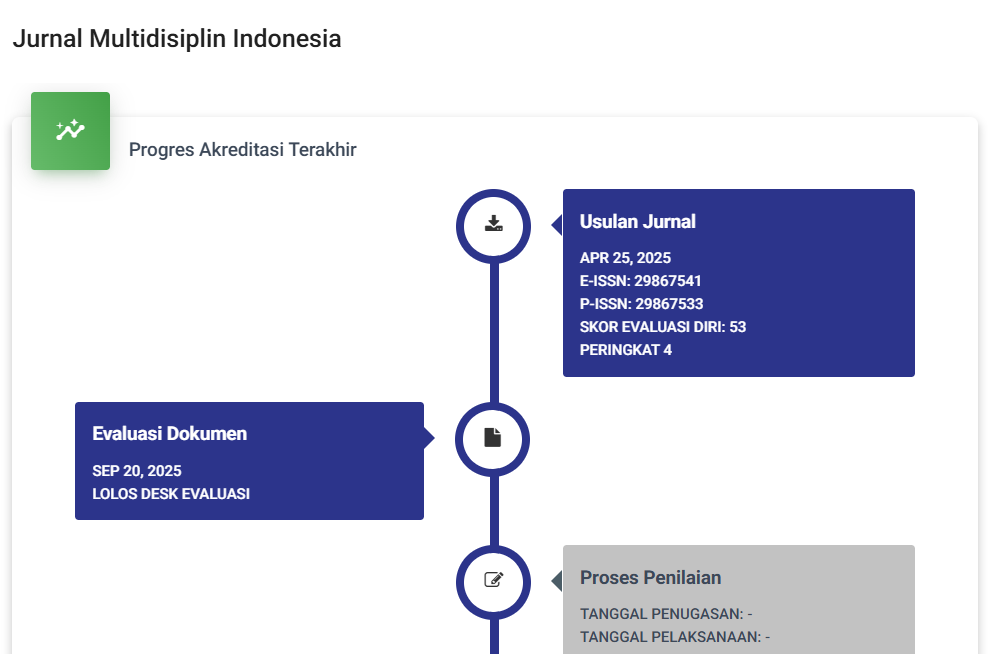MPR Annual Session and Substantial Democracy: Considering the Relevance of Constitutionalism and Popular Sovereignty in the Governance of Indonesian Democracy
DOI:
https://doi.org/10.62007/joumi.v3i2.476Keywords:
MPR Annual Session, substantial democracy, people's sovereignty, constitutionalism, checks and balancesAbstract
The institutional transformation of the People's Consultative Assembly (MPR) post-reformation has shifted its constitutional role from the highest state institution to one of the important pillars in the state system that emphasizes the principle of division of powers. The MPR Annual Session emerged as a forum that accommodates the submission of annual reports of state institutions and the President's state address. However, the effectiveness of this forum is still questionable: is it merely ceremonial or does it play a role in strengthening substantial democracy based on people's sovereignty and constitutionalism? This paper examines the relevance of the MPR Annual Session in strengthening substantial democracy in Indonesia through a normative-constitutional approach and the theory of people's sovereignty. The focus of the analysis is directed at the potential of this forum as an accountable deliberative instrument, to strengthen transparency and the mechanism of checks and balances between state institutions. This article argues that strengthening the role of the MPR Annual Session is not merely symbolic, but important in facing the challenges of procedural democracy and oligarchic tendencies in policy practice. Thus, the institutional reform of the MPR Annual Session is a strategic step to realize a more inclusive, responsive, and equitable constitutional democracy.
References
Diamond, Larry, dan Leonardo Morlino. “The Quality of Democracy: An Overview.” Journal of Democracy 15, no. 4 (2004): 20–31.
Habermas, Jürgen. Between Facts and Norms: Contributions to a Discourse Theory of Law and Democracy. Diterjemahkan oleh William Rehg. Cambridge: MIT Press, 1996.
Marshall, Geoffrey. Constitutional Theory. Oxford: Clarendon Press, 1971.
Rousseau, Jean-Jacques. The Social Contract. Diterjemahkan oleh Maurice Cranston. London: Penguin Books, 1968.
Schedler, Andreas. “The Politics of Unaccountability.” Dalam The Self-Restraining State: Power and Accountability in New Democracies, disunting oleh Andreas Schedler, Larry Diamond, dan Marc F. Plattner, 13–28. Boulder: Lynne Rienner Publishers, 1999.
Shephard, Mark, dan David Arter. “The Deliberative Role of Parliamentary Committees in Comparative Perspective.” Legislative Studies Quarterly 39, no. 2 (2014): 171–198.
Tushnet, Mark. The Constitution of Deliberative Democracy. Princeton: Princeton University Press, 2003.
RM. A.B. Kusuma, Sistem Pemerintahan “Pendiri Negara” Versus Sistem Presidensiel “Orde Reformasi”, Badan Penerbit Fakultas Hukum Universitas Indonesia, 2011, hal 45.
Undang-Undang Dasar Negara Republik Indonesia Tahun 1945. United States Constitution, Article II, Section 3.
Downloads
Published
How to Cite
Issue
Section
License
Copyright (c) 2025 Mohammad Reza, Azis Budianto

This work is licensed under a Creative Commons Attribution-ShareAlike 4.0 International License.







